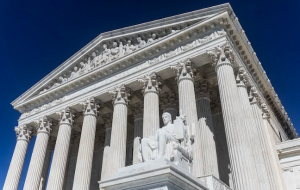The Story So Far
For those just tuning in, this series is about gender transition in Catholic doctrine. If you have the time and inclination, you can read the first, second, and third parts of this series at the highlighted links; if not, I’ve done my best to summarize below.
About a month ago, a few Catholic priests tweeted some extremely ignorant remarks on trans issues. This made me pretty angry, for several reason. People authoritatively spouting nonsense usually gets under my skin regardless; moreover, it was yet another example of the casual insolence and bigotry Catholics are constantly bringing to LGBT issues1—which cause immense damage and scandal even to well-meaning people, let alone people who want to weaponize that stuff against their favorite scapegoats. (It exasperated me for one more reason too, which we’ll be returning to near the end of this series.)
How About a Nice Big Mug of

A major part of the discourse problem is that Catholics talk quite casually about problems that don’t affect them, with no hint at all that they see how rude and foolish this is. (Incidentally, being a rude and ignorant busybody is a great example of “giving scandal,” something I gather many Catholics worry about a lot but don’t seem to understand that well.) Now, yes, there is a time and place when discussing things purely in the abstract is fine; thought experiments aren’t all radioactive.
But when you’re talking about something that’s abstract for you, but vividly and lethally concrete for someone else, you need to do justice to that difference, or I guarantee you’ll do an injustice to it. Think before you speak. Try to show some sensitivity and tact, and don’t pretend you have the same grasp of the subject they do or that you’re running the same risks they are.
Enthusiasts for the “free marketplace of ideas” often object to this. They tend to argue that everyone’s voice should be heard and given equal weight, in the name of free speech. The only thing to be said about this view is that it’s stupid. Not everyone has the same perspective or expertise, and—while we don’t and shouldn’t legally punish people for breaking this rule—we rightly privilege the voices of people who know what they’re talking about over those who don’t. We just do it on the basis of conscience and by means of social enforcement tools instead of the law, because the law isn’t the basis of all human thought and behavior.

So far from having the courtesy and honesty to patiently research trans issues and give due weight to trans sources in doing so, Catholics habitually spout shocking psychological and medical nonsense about trans people as if it were fact—or worse, as if it were profound spiritual insight. Even priests. Especially priests. This is not always malicious slander; but as a rule, it is not less than negligent slander. And speaking of medical issues: neither Catholicism in general nor Holy Orders comes with automatic training in medicine, or even in psychotherapy. Don’t run your mouth if you don’t know what you’re talking about. Mere human decency demands more effort than that, to say nothing of the sacred purpose of the priesthood.
That summarizes the series so far. Let’s move forward.
He Said She Said
The main point of my last post was, let’s say it again: transition is the only medically effective treatment for gender dysphoria. People with dysphoria can choose to cope instead of taking treatment, and they can decide how far they want to go in transition (which comes in various forms). But there’s no drug or a therapy that changes people from being dysphoric to being happy with their birth sex; the body is, apparently, more tractable than the mind about this.3
There is one supposed wrinkle in that which I mentioned but postponed talking about, for space reasons. That is the phenomenon of detransition. Of the small number of people who pursue gender transition, a small percentage of those people change their minds and transition back. Some people will try to tout this as evidence that The Trans Lobby is operating in bad faith—hiding the truth, distorting the facts, pressuring people to transition who don’t want to, etc.
Now, this topic calls for delicate and, ideally, expert handling. I am not an expert on detransition. I can only imagine the emotional turmoil, social costliness, and sheer exhaustion that this much change must put people through, and I have no desire to paint detransitioners in a bad light just because they seem politically inconvenient for people I care about; detransitioners deserve the same human consideration we owe to anybody.

And I sure hope I would be principled enough to write that sentence even if detransitioners were the useful tools which the anti-trans lobby likes to pretend they are.
The Relevance of Detransition
First of all, we are talking about medicine here. No treatment, for anything, is invariably effective; that’s part of why we look for the resurrection of the dead, and the life of the world to come. The fact that a treatment doesn’t work in some cases, or doesn’t work as well as hoped, is not a case against that treatment but a fact of life. You might as well cite cancer deaths as evidence that chemo doesn’t work.
Second, I said that a small percentage of people who transition later choose to detransition. This is true, but frankly, I undersold it a bit. A study conducted in 2015 found that only 8% of people who transitioned went on to detransition—and on top of that, nearly two thirds of that 8% resumed transition later on! This seems to be due to several factors, but it’s worth noting that the choice to desist was not consistently linked to the person deciding transition had been bad judgment in the first place. That was a motive in a few cases, yes; but most detransitioners cited other factors, high among them being pressure from family members. This doesn’t mean we should dismiss the stories or sufferings of people who detransition, including those who determine that they made the wrong call at the start by pursuing gender transition. But equally, their stories do not and cannot invalidate the overwhelming majority of people who are satisfied with the results of their transition and do feel that it has helped them lead more fulfilling lives.
There’s a Latin saying that summarizes the thrust of both of these points: abusus non tollit usum, “the abuse does not take away the use” (i.e., the fact that a thing can be misused doesn’t mean its legitimate uses can be ignored). Even if transition were only an improvement for a small minority of people with gender dysphoria—and again, that’s the exact opposite of how things are—it still wouldn’t be invalidated by the legitimate stories of detransitioners.

All of this, as I said, is a sort of addendum to Problem #3, which my last post was about. Let us now move on to the next problem.
4. The policies Catholic dioceses have started laying down about trans people are so impractical, it’s impossible to believe the bishops have thought them through at all.
Lots of dioceses don’t have any explicit policies about trans people. However, in the last several years, a handful have published new documents, outlining everything from eligibility for baptism to what pronouns diocesan employees are to refer to people by. The Archdiocese of Arlington, the Archdiocese of Milwaukee, and the Diocese of Marquette are the ones I’m aware of that have released policy statements about trans people in the last few years.
One such set of guidelines—Marquette’s, I believe—actually forbids diocesan employees from using trans people’s preferred pronouns and requires that only those of a person’s assigned sex at birth3 be used. (The same presumably goes for honorifics like ma’am or sir.) Stop a sec. Think about how that’s going to play out. How often, on meeting someone, do you get a look at their birth certificate? And even if you do, does it come with a full documentation history, so you can be sure their assigned sex at birth hasn’t been changed? Exactly how much follow-up are diocesan employees supposed to do before using gendered language to or about a person? If they’re doing this much snooping into people’s medical history, what if the person under discussion is intersex—are they allowed to use all pronouns, or none?
Or are people working for this diocese simply supposed to guess people’s assigned sex at birth and refuse to change pronouns and titles, if the person they’re speaking to objects? If that’s the strategy, how long is it going to be before an odd-looking, but cisgender,4 member of one sex or the other is wrongly addressed by church employees who refuse, point blank, to accept correction from the person they’re thus insulting?

In other words, in order to carry out the basic functions of their jobs—and technically, this applies not just to trans people but to everyone they speak to or about—diocesan employees must do one of two things. Either they can skirt or disobey the bishop’s policies, for the sake of basic civility; or, they can alienate people by an unintentionally, and yet predictably, rude guessing game.
And for what? Is this the good news? Seriously, think it out: is there a single person on earth who, having previously been convinced trans identities deserve respect, would be persuaded by this policy’s example that actually the conservative view of things is right? Is there one single person anywhere who—on facing what will, unquestionably, come off as an unbelievably petty code of conduct—would have any reason not to think that the Church’s clergy and faithful alike just cherish a nasty pleasure in hurting trans people’s feelings? And if the Church does that to trans people apropos of absolutely nothing, is it really a surprise if trans people then indignantly reject her claim to love trans people and call it revolting piece of transparent hypocrisy? What can these bishops possibly think this sort of thing achieves?
But there is one more point to consider—and the fifth is the worst.
Footnotes
1E.g.: for the quintillionth time, no, trans people are really not like Gnostics at all. (Basically nothing that people say is “a modern form of Gnosticism” actually calls for the description, any more than a red apple is “a fruit form of” a red sports car.) The comparison doesn’t pass basic scrutiny. One of the few ideas that all forms of Gnosticism shared is that the body is a tomb or prison, binding us to the physical plane, which the elect are eager to depart. None of them would even have considered the fundamental assertion of any trans identity, which is that our bodies (particularly the sex characteristics of our bodies) are rightly and deeply important to our sense of who we are. They’d have been extra baffled by the medical and political interests of trans people being called “Gnostic,” since these interests fix our attention yet more on the body, society, and current events, rather than on the spiritual and intellectual mysteries the Gnostics were preoccupied with.
2From what I’ve read, researchers do still consider it possible that this is somehow rooted in the body itself—perhaps an aspect of neurochemistry or brain structure we don’t fully understand yet. However: (a) I may be behind on my reading here; (b) even if I’m correct, until those things are better understood, transition will still be the only effective treatment for dysphoria that’s actually available; and (c) even once everything about the physical basis (or lack thereof) for dysphoria is fully worked, that won’t necessarily mean it can be cured. We must deal in what we actually know, not in what we might like to be true because it would be spiritually and politically convenient.
3Assigned sex at birth (or more commonly the acronyms AMAB and AFAB, “assigned male” and “assigned female at birth”) is a technical medical phrase that means “the sex they initially put on your birth certificate”; it is often used in trans discourse to discuss what I’ve most been calling “birth sex” in this series. Some people see the word “assigned” in there and think this has something to do with the claim that sex is a social construct, and may leap from here to the conclusion that assigned sex at birth is code for “I’m a postmodern subjectivist who wants to destroy all sexual categories and laws.” However, it’s more like being assigned a grade—the grade does indicate a real thing, it’s just not giving full details.
4Suppose dead ringers for Timothée Chalamet and Tilda Swinton walk in one day, for instance.













